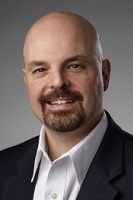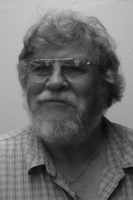New Fellows Announced
The Board of Governors is pleased to announce the recent approval of two new Fellows of the Society for Cryobiology: Erik Woods and Art DeVries. Erik and Art will be presented with their Fellow medals during a special session at CRYO2021, held in Chicago, July 20-23, 2021.  Erik Woods
Erik Woods
Following undergraduate studies in Biology and Classics at Indiana University in Bloomington, IN, Dr. Woods performed his graduate work at the Cryobiology Research Institute (CRI) under Dr. John Critser, earning a PhD through the Hillenbrand Center for Biomedical Engineering at Purdue University in West Lafayette, IN developing methods for cryopreservation of encapsulated human and canine pancreatic islets. While at the CRI he worked across fields as well studying reproductive and hematologic system cryobiology. He then completed a Post-Doctoral Fellowship at the Herman B Wells Center for Pediatric Research at the Indiana University School of Medicine in Indianapolis, IN, focusing on enhanced methods of umbilical cord blood stem cell isolation and cryopreservation.
Dr. Woods has devoted his career to advancing cell culture and cryopreservation to facilitate mainstream clinical use of cellular therapies, first co-founding a company in 1997 which he led for 15 years through successful acquisition by COOK Medical in 2012. There he launched the first client depositor sperm bank in Indiana and developed a contract cell production and banking service with contracts across multiple countries. He is currently Co-Founder and Chief Science Officer of Ossium Health, a company developing the first cryopreserved bone marrow bank from deceased organ and tissue donors and serves as the Laboratory Director of the Ossium Health Testing Laboratory, which is the CLIA certified testing group for Ossium production. He is also Adjunct Faculty in Medical and Molecular Genetics at the Indiana University School of Medicine, where he has held an adjunct position since 2003, and Adjunct Faculty at the Marian University College of Osteopathic Medicine.
Dr. Woods has focused his research on key cryopreservation optimization strategies that are fit for scientific and regulatory scrutiny to achieve sustained clinical impact. He has generated multiple lines of technology related to cryopreservation, resulting in numerous patents, publications, and grants. During his career in industry, he has balanced the need to maintain intellectual property protection and generate revenue with the goal of disseminating knowledge through publications and presentations. As an applied scientist who has spent a career producing various cells and cryopreserving them for use, the key metric that has dictated success has been functional post-thaw survival. In both the reproductive and stem cell manufacturing fields, he has won market share by leveraging new technologies to produce better post-thaw outcomes. Technologies that were acquired through his original businesses have yielded successful product lines and are currently used around the world. Clinical material he has banked over his career is being used every day for fertility purposes and for stem cell therapies.
 Art DeVries
Art DeVries
Dr. Arthur L. DeVries is an emeritus Professor of Evolution, Ecology and Behavior at University of Illinois at Urbana-Champaign (UIUC), where he was previously a Professor of Molecular and Integrative Physiology and a Professor of Animal Biology. He received his B.S. in Zoology in 1960 from the University of Montana and his Ph.D. in Biology from Stanford University in 1968 and thereafter worked at UCSD and UC Davis before settling at UIUC.
Dr. DeVries was the first to discover the seemingly impossible properties of antifreeze proteins. His work was recognized by the American Association for the Advancement of Science, which made him a Fellow of the AAAS, and by the National Science Foundation, which gave him the seventh position in their “Nifty 50” lineup of notable scientists on the occasion of their 50th anniversary in 2000.
He received the Lifetime Achievement Award at the First International Ice-Binding Protein Conference in 2011 as well as two awards from the Italian National Antarctic Programme and Italian Committee for Antarctic Research in 2005 and an honorary Doctorate of Science degree at Roskilde University in Denmark in 2014. He was chosen in 2015-2016 to give prominent lectures for the American Physiological Society, Novo Nordisk Foundation, and the Institute of Arctic Biology. He even had a new Antarctic fish, Paraliparis devriesi, named after him in 1980.
His work has received continuous funding from the NSF since 1971, and he has published 194 scientific papers on antifreeze proteins and given 61 invited lectures and seminars. A long-standing member of the Society for Cryobiology, Dr. DeVries served on the Editorial Board of Cryobiology from 1986-1990 and published 10 papers in Cryobiology from 1972 to 2002. His work has been cited over 9400 times and led to a large variety of derivative studies published in our journal, including studies on the facilitation of vitrification. Art’s discovery with Boris Rubinski and Amir Arav that AFPs stabilize membranes and block chilling injury has provided a new dimension to these molecules and another tool for applied research and was awarded a US Patent in 1994.
Art’s discovery of and further studies on antifreeze proteins and their properties and evolutionary origins and implications has forever changed our understanding of cold adaptation, ice physics, and membrane protection at low temperatures.

